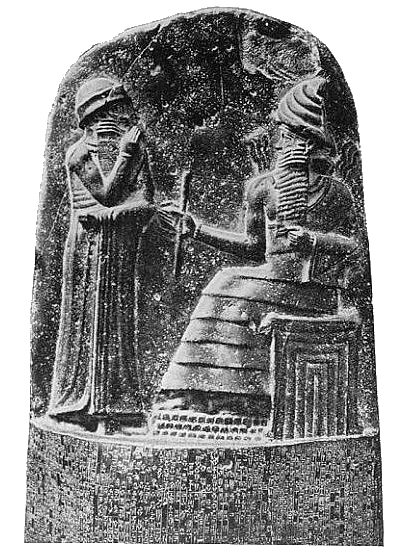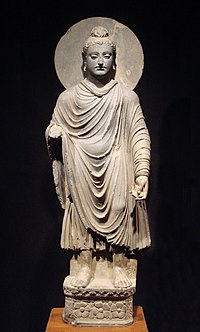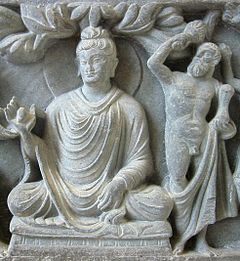jhine
3 days ago
Fulltime , have you found much in common between Eastern and Western religious thought , like the " do unto others " kinda thinking ? I would be interested in how much we have in common , not necessarily because of transfer of thinking but just because of our shared humanity .
Jan
I suggest that the aspirations of our shared humanity are the basis of much religious and philosophical thinking. It comes across rather clearly in this youtube video.
https://www.youtube.com/watch?t=415&v=2Ci613QcC5E
Judeao/Christian teachings on love are NOT unique, a point that the above video makes.
To illustrate, we can look to two of the great thinkers of ancient China, Kong zi (551-479 BCE)-(Confucius) and Mozi (470-391 BCE)
Kong zi based his teachings on 'jen' (humanity) and Mo zi based his on the concept of righteousness. Which sound similar, and in some ways were, but in the field of human relationships there was a sharp divergence, (at least in the theory). Thus in Kong zi's thought, 'love' should embrace all, but must start with one's parents. Hence, his view of love had distinctions. Whereas Mozi taught a truly Universal love, (i.e.) with no distinctions. Mo zi once walked (so the story goes) for ten days and nights in an effort to dissuade the ruler of a small state from going to war with another state. (Mozi condemned wars).
--------------------------------------------------------------------------------------------
And possibly the Law code of Hammurabi, which starts on page 6 of this link, is another example:
http://www.general-intelligence.com/library/hr.pdf,

One example of Hammurabi's lawcode - quite a few copies have been recovered.
Laws, need lawmakers/givers, so note the sculptured figures on another copy.

So this may also an example of human intelligence working out rules that assist in preventing chaos by defining human behaviour.
The Wikepedia entry (from where those two illustrations were found) notes:
Earlier collections of laws include the Code of Ur-Nammu, king of Ur (c. 2050 BC), the Laws of Eshnunna (c. 1930 BC) and the codex of Lipit-Ishtar of Isin (c. 1870 BC), while later ones include the Hittite laws, the Assyrian laws, and Mosaic Law.[10] These codes come from similar cultures in a relatively small geographical area, and they have passages which resemble each other.[11]
- http://en.wikipedia.org/wiki/Code_of_Hammurabi
And, I guess it will come as no surprise, that a surviving copy of Hammurabi's code (dated to circa 1700BCE) has been found. Wikipedia comments:
In July, 2010, archaeologists reported that a fragmentary Akkadian cuneiform tablet was discovered at Tel Hazor, Israel, containing a c. 1700 BC text that was said to be partly parallel to portions of the Hammurabi code. The Hazor law code fragments are currently being prepared for publication by a team from the Hebrew University of Jerusalem.[20]
So was the Mosaic code original, or was it based on previous models. Difficult to prove either way.
Another common concept that I've noted is the need to train children. Rather obvious for humans, but again the Biblical versions are not unique.
So clearly, certain human conditions/problems seem to produce common reactions. But for me, the most interesting aspects of human interaction is when we can find evidence of a syncretic reaction to an interface between different thought systems.
Here's an example:

Looking at this image of Buddhist statue (dated to first/second century CE), what do we notice? I saw nothing special until it was pointed out to me that the robe clothing the Buddha is Greek. The statue comes from modern day Afghanistan, an area conquered by Alexander (the great) and incorporated into the successor Seleucid Empire. Thus bringing Hellenistic influences into Buddhism.
In this sculpture:

Dated to second century CE, we see a Hellenistic 'Hercules' figure as a protector of the Buddha.
When Buddhism hit China, (starting about the last century BCE) there was little reaction at first, but eventually we can trace the interaction and reactions of arguments between Buddhist practioners and those who held to Confucianism and Daoism.
And, an interesting development in Buddhism (no time/space to go into detail) was the development, likely in the first century BCE, of Mahayana Buddhism, with the idea that if you called on the name of one of the Buddhas, he would take you to his western paradise, when you died.
Descriptions of the western paradise are very similar to the "New Jerusalem" in the closing chapters of the Revelation.
Interesting, isnt it?





